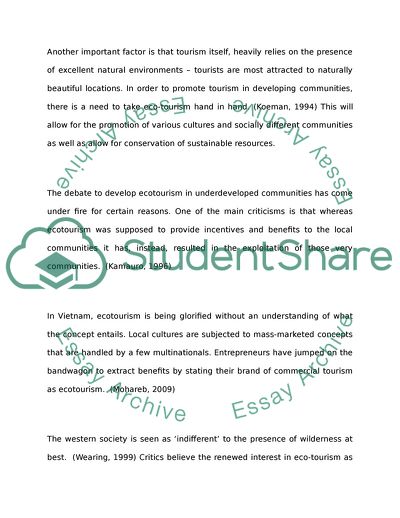Cite this document
(Ecotourism: Pros and Cons Essay Example | Topics and Well Written Essays - 2000 words, n.d.)
Ecotourism: Pros and Cons Essay Example | Topics and Well Written Essays - 2000 words. https://studentshare.org/tourism/1734739-ecotourism
Ecotourism: Pros and Cons Essay Example | Topics and Well Written Essays - 2000 words. https://studentshare.org/tourism/1734739-ecotourism
(Ecotourism: Pros and Cons Essay Example | Topics and Well Written Essays - 2000 Words)
Ecotourism: Pros and Cons Essay Example | Topics and Well Written Essays - 2000 Words. https://studentshare.org/tourism/1734739-ecotourism.
Ecotourism: Pros and Cons Essay Example | Topics and Well Written Essays - 2000 Words. https://studentshare.org/tourism/1734739-ecotourism.
“Ecotourism: Pros and Cons Essay Example | Topics and Well Written Essays - 2000 Words”. https://studentshare.org/tourism/1734739-ecotourism.


